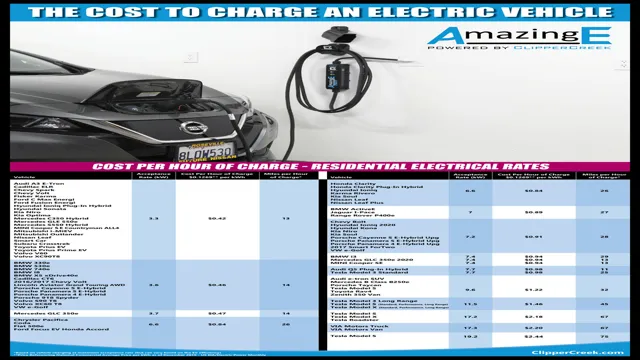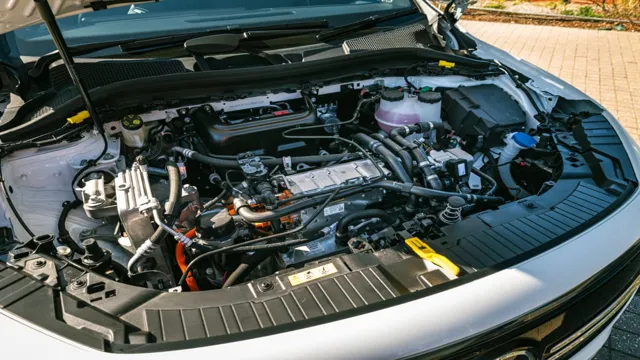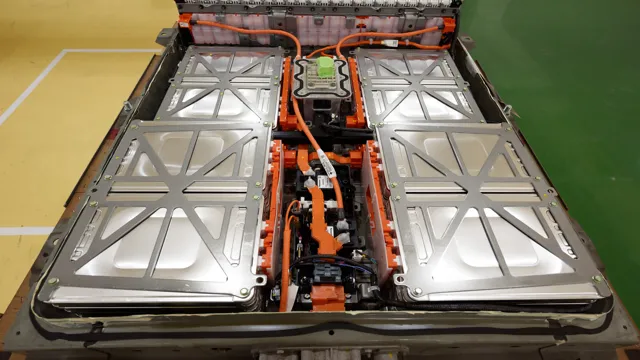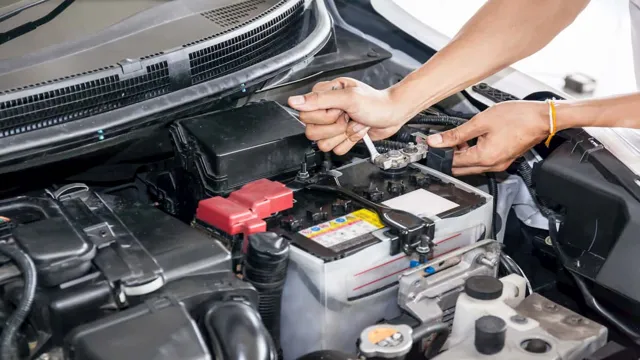Unleashing the Truth: What’s the Real Cost to Charge Your Electric Car Battery?
Have you recently invested in an electric car? Congratulations, you’re officially part of the eco-friendly community that is leading the charge towards a sustainable future! However, you may be wondering just how much it’ll cost to charge your new ride’s battery. Don’t worry, we’ve got you covered. In this article, we’ll explore the factors that determine the cost to charge an electric car battery and provide you with essential insights into keeping your vehicle charged without breaking the bank.
Ready to learn more? Let’s dive in!
Electricity Rate
If you’re considering purchasing an electric car, one question you may have is the cost to charge the battery. Fortunately, the cost is significantly lower than filling up a traditional gasoline-powered car. In terms of electricity rates, it really depends on where you live and your local utility company.
Some areas have lower rates, which means lower costs to charge your vehicle, while others may have higher rates. However, in general, charging your electric car will cost you less than what you would pay for a gallon of gas. Additionally, utilizing time-of-use rates and charging during off-peak hours can further reduce your costs.
It’s important to note that the cost of charging your electric car battery will also depend on the size of the battery and the charging speed. A larger battery will cost more to charge than a smaller battery, and faster charging speeds generally come at a higher cost. Overall, the cost to charge an electric car battery is significantly lower than the cost of gasoline, but it’s important to research and compare electricity rates in your area to get a better sense of the costs specific to your situation.
How to Find Your Electricity Rate
Finding Your Electricity Rate If you’re moving to a new home or simply looking to switch electricity providers, one of the most important things you’ll need to know is your electricity rate. Your electricity rate determines how much you pay for each unit of energy you use, and it can vary depending on where you live and which electricity provider you choose. One of the easiest ways to find out your electricity rate is to simply look at your electricity bill.
This will typically show you the rate you’re currently paying as well as any fees or charges that are included. You can also check with your electricity provider directly or use online resources to compare rates and find the best options for your needs. By understanding your electricity rate, you can make informed decisions about your energy usage and save money on your monthly bills.
Average Electricity Rates by State
Electricity rates can vary greatly depending on the state you live in. According to recent data, the average electricity rate in the United States is 119 cents per kilowatt-hour (kWh).
However, this number can vary significantly across states, with some states having rates as high as 22 cents per kWh and others as low as 8 cents per kWh. These differences can be due to factors such as the source of electricity, the infrastructure available, and the level of competition among providers. For example, states with abundant renewable energy resources like solar and wind tend to have lower rates, while those heavily reliant on fossil fuels may have higher rates.
Additionally, states with deregulated energy markets, such as Texas, may have more competition among providers, leading to lower rates for consumers. Overall, it is important to keep in mind the differences in electricity rates when deciding where to live or when considering energy providers in your area.
Battery Capacity
Are you thinking about switching to an electric car but worried about the cost to charge its battery? The truth is, charging an electric car is far cheaper than filling up a gas tank. The cost to charge an electric car battery depends on the capacity of the battery and the cost of electricity in your area. On average, it can cost anywhere from $5 to $15 to fully charge an electric car battery.
This cost is significantly lower than the cost of gasoline needed to fill up a traditional car. Additionally, many electric car owners are able to charge their car’s battery for free at public charging stations or at home using solar panels. The battery capacity of electric cars varies from model to model, so it’s important to research and select a car with a battery capacity that suits your driving needs.
By investing in an electric car, you’ll not only save money on fuel costs but also help reduce your carbon footprint.
What is Battery Capacity?
Battery capacity refers to the amount of energy that a battery can store. This is generally measured in ampere-hours (Ah) or milliampere-hours (mAh), and it can be a critical consideration when choosing a battery for a particular device. The higher the battery capacity, the more energy it can hold, and the longer it can power the device before needing to be recharged.
However, it’s important to note that battery capacity isn’t the only factor that determines battery life. Other factors such as the device’s power consumption and usage patterns can also have a significant impact. When selecting a battery, it’s important to consider both the capacity and the specific needs of the device to ensure optimal performance.
How to Determine Your Car’s Battery Capacity
Determining your car’s battery capacity is important to ensure that you have the right size battery to power your vehicle properly. The battery’s capacity, measured in amp-hours (Ah), tells you how much electrical energy it can supply. To determine your car’s battery capacity, you can check the manufacturer’s specifications or look for the label on the battery itself.
The label should indicate the battery’s Ah rating as well as other important information like the voltage and chemistry. If you’re replacing your battery and can’t find the label, you can use a multimeter to measure the voltage and the amperage to calculate the capacity. It’s important to ensure that the replacement battery has the same or higher capacity to ensure the proper functioning of your car’s electrical system.
Remember, a reliable car battery is essential to keep your vehicle running smoothly and avoiding unexpected breakdowns.
Charging Time
When it comes to owning an electric car, one of the biggest concerns people have is the cost of charging the battery. Luckily, charging an electric car is significantly cheaper than refueling a gas-powered car. On average, it costs about $0.
13 per kilowatt-hour (kWh) to charge an electric car, which means a full charge for a typical electric vehicle with a 60 kWh battery costs around $80. Plus, you can save money by charging during off-peak hours when electricity rates are lower.
However, another factor to consider is the time it takes to fully charge an electric car battery. Depending on the make and model, it can take anywhere from several hours to a full day to completely charge an electric car. It’s important to factor in charging time when planning longer trips to ensure you have enough time to reach your destination and recharge if necessary.
Overall, while there may be some initial investment in a home charging station, the cost to charge an electric car battery is significantly lower and better for the environment than traditional gasoline-powered cars.
Factors Affecting Charging Time
Charging time is an important factor when it comes to using electronic devices, and there are several factors that can affect it. One key factor is the capacity of the battery, with larger batteries taking longer to charge. Another factor is the type of charger being used, with some chargers being more efficient than others.
Additionally, the age of the battery can also affect charging time, as older batteries may hold less of a charge and take longer to charge. The temperature in which the device is being charged can also play a role, as extreme temperatures can slow down the charging process. Overall, it is important to consider these factors when charging your device in order to optimize the charging time and maximize its overall lifespan.
Average Charging Times for Different Electric Cars
Charging Time Electric cars have been gaining popularity thanks to their eco-friendliness and cost-efficiency. One of the main concerns of electric car owners, however, is how long their car’s batteries will take to charge fully. The charging time varies depending on the car model and its battery capacity.
On average, it takes about 30 minutes to charge a Tesla Model 3 battery from 10 to 60% using a fast-charging station. On the other hand, a Nissan Leaf may need up to 45 minutes to charge from 20 to 80%. Larger battery capacity models such as the Audi e-tron and Jaguar I-Pace may take around 45 minutes to charge from 10 to 80% using a fast-charging station.
It’s important to note that charging times can vary depending on the charging station’s power output and the state of the car’s battery. Nevertheless, the overall trend is that fast-charging station technology is improving, meaning that charging times should continue to decrease. It’s also worth noting that you can always charge your electric car overnight using a slower home charging station, so you can wake up to a fully charged car every morning.
Cost of Charging
When it comes to owning an electric car, one of the major benefits is the lower cost of fuel. However, you may be wondering about the cost to charge the battery. The truth is that the cost to charge an electric car battery can vary depending on a few factors.
The first factor is the price of electricity in your area. If you live in an area with high electricity prices, then you will likely pay more to charge your car. Another factor is the size of your battery, as a larger battery will require more energy to charge.
Additionally, the type of charger you use can affect the cost. Fast chargers can be more expensive to use than slow chargers. It’s also worth noting that some charging stations are free, while others may require a fee.
Overall, the cost to charge your electric car battery can be significantly lower than the cost of gasoline for a traditional car.
Calculating the Cost of Charging
If you have an electric car, calculating the cost of charging it may seem challenging, but it’s not as complicated as you might think. The cost of charging your car depends on several factors, including your local electricity rates, the capacity of your battery, and the charging speed. To calculate the cost, start by finding out your rate per kilowatt-hour (kWh) from your electricity provider.
Then, determine the battery’s capacity and the amount of energy required to charge it fully. Finally, multiply the kWh rate by the amount of energy required to get the cost of charging your electric vehicle. However, keep in mind that charging rates may vary depending on the time of day and where you live.
So be sure to check with your electricity company to get an accurate estimate of the cost of charging your electric car. Overall, owning an electric car is still cheaper than owning a traditional car, and with more people switching to electric cars every day, it’s becoming a more cost-effective and environmentally friendly choice.
Comparing Electric Car Charging Costs with Gasoline Costs
Electric car charging costs are significantly lower compared to traditional gasoline costs, making electric vehicles the more economical option in the long run. The cost of charging an electric car will vary depending on the location and time of day, with rates typically being cheaper during off-peak hours. Additionally, some public charging stations may offer free charging or discounted rates for electric vehicle owners.
On average, it can cost around $9 to fully charge an electric car, with a range of approximately 100 miles. In contrast, filling up a gas tank for a car with a similar range can cost up to $30 or more, depending on the current price of gas. While electric cars may have a higher upfront cost, the lower cost of charging and maintenance over time make them a more cost-effective and environmentally friendly option in the long run.
Conclusion
In the world of electric cars, the cost to charge your battery is not just a matter of dollars and cents. It’s a measure of your environmental impact, your commitment to sustainability, and your willingness to embrace the future of transportation. So when you plug in your electric car, you’re not just filling up your tank, you’re making a statement about who you are and what you stand for.
And that, my friends, is priceless.”
FAQs
How much does it cost to fully charge an electric car battery?
The cost to fully charge an electric car battery varies depending on the model of the car and the location, but on average it can range from $8 to $20.
Can I charge my electric car battery at home?
Yes, you can charge your electric car battery at home using a dedicated charging station or a standard wall outlet with an adapter. However, it may take longer to charge with a standard outlet.
Are there public charging stations available for electric car batteries?
Yes, there are public charging stations available across the country for electric car batteries. Some are free, while others may have a cost associated with usage.
How long does it take to charge an electric car battery?
The time it takes to charge an electric car battery depends on the charging level and the size of the battery. A Level 1 charging station can take up to 20 hours, while a Level 3 charging station can provide an 80% charge in as little as 20 minutes.




